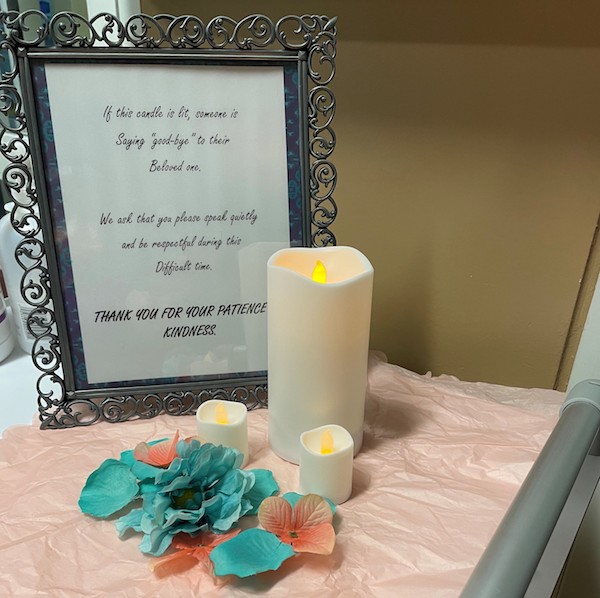
File photo.
Written by Ben Hensley
ICU nurses at Kaiser Permanente Fresno Medical Center have been issued cards containing a passage to be read aloud immediately following the death of a patient.
Aimed at honoring the recently deceased and to bring closure to the health care staff on site, The Pause, first created by Virginia trauma nurse Jonathan Bartels, was introduced to the Kaiser staff by Assistant Nurse Manager, Cristina Pechardo, who herself first learned of the practice while working at Saint Agnes Medical Center several years ago.
“The Pause is a passage that we read when the patient passes away,” Pechardo said, explaining that immediately following a death, fellow health care workers often become emotionally affected.

“This is respecting the body of the person who was precious and their life is now gone,” Pechardo continued, explaining that the practice was first introduced to the staff at Kaiser in late 2021 following a particularly heart-wrenching loss.
“We had a difficult code at that time in one of our units,” she said. “At that moment, I didn’t have a copy, but it was ingrained in my mind.”
While hospitals are no stranger to patients death, for ICU patients who are hospitalized long-term, staff may have gotten to know the patient and can be emotionally affected by their passing.
Here are the words to “The Pause:”
“Could we take a moment just to pause and honor this person in the bed. This was someone who was alive and now has passed away. They were someone who loved and was loved. They were someone’s friend and family member. In our way and in silence let us take a moment to honor both this person and all the efforts that were made on their behalf.”
As opposed to the emergency department, in the ICU, often next of kin have been contacted, and are en route during a patient’s final moment. The Pause is primarily used in sudden events when they take place in the ICU to bring closure to the medical team who worked with the patient.
“Some of the deaths in the ICU are different because they’re someone who has been suffering for a while,” Pechardo said, explaining that the “ritual care” that can take place with family and loved ones nearby often does not take place in emergency rooms due to the nature of the department and how they operate.
The Pause gives the staff the opportunity to respect the body of the deceased and the staff.
“We will do the briefing after,” Pechardo said. The briefing is a streamlined moment for health care professionals to reflect on what transpired and if they could have improved their care or performed in a different way.
The briefing is usually done immediately following The Pause, which gives the staff an opportunity to separate the two practices.
“It doesn’t matter how they were when they were alive, who they were then they were alive, when the patient dies, that body becomes sacred,” Pechardo said, quoting a former coworker.








